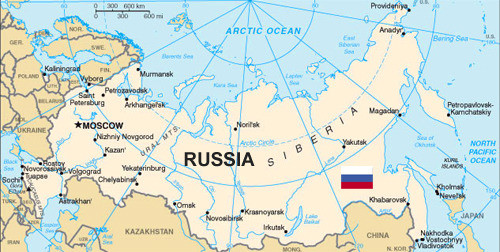Russians’ Unwillingness to Take Responsibility Found Wherever They Feel They can’t Affect Outcomes, Levada Center Sociologist Says

(Paul Goble – Window on Eurasia – Staunton, Oct. 13, 2020)
As was the case at the beginning of the pandemic, so now too again Russian officials are complaining that the unwillingness of Russians to assume personal responsibility may force the government to take repressive actions that will harm everyone, Karina Pipiya says.
But the Levada Center sociologist says that this unwillingness to take responsibility did not emerge out of nowhere. Instead, it reflects the judgment of Russians that they will take responsibility when they can effect outcomes but not take it over things about which they have no effective say (vtimes.io/news/svoya-i-chuzhaya-otvetstvennost).
For the last 25 years, Pipiya continues, the Levada Center has surveyed Russians on where they feel responsible and where they don’t. The latest poll, last month, found that 93 percent say they feel responsible for their families, 61 percent for those who live close to them and 56 percent for those with whom they work.
Those three areas have been at the top in almost all the surveys her colleagues have conducted, the sociologist says; and they reflect the sense among Russians that what they do in those spheres may make a difference. As far as broader groups like the city or country, she says, Russians don’t feel responsible because they don’t feel they can do anything about them.
Fewer than half – 41 percent of Russians in the latest survey – say they feel responsible for the life of their city or district; and still fewer – just 31 percent – say they feel that way with regard to the Russian Federation as a whole. These feelings parallel their sense of any ability to affect developments in these larger spheres.
But levels of conviction that Russians can affect their city or country rose in 2017 and 2018 when the Kremlin raised the retirement age. But it has since subsided back to more or less where it was before.
“It is interesting,” the sociologist continues, “that Russians who refused to take part in voting [in September] did not differ in their sense of responsibility” about the country or the region in which they lived. Both groups, she says, were convinced that they weren’t going to affect things one way or another.
According to Pipiya, “the lack of a sense of responsibility for something bigger than one’s family and work at present is not shameful. Rather it is an unspoken norm which doesn’t elicit collective condemnation. In August, 44 percent of Russians said they didn’t always fulfill their obligations to the state, but about the same share said the state didn’t fulfill its to them.
In a situation like that, she suggests, it is unreasonable for the government to assume that the population will take responsibility even during a pandemic for anything larger than family, neighbors or co-workers. If Moscow wants Russians to do so, it must allow them to feel they can make a difference in outcomes for themselves.
[article also appeared at windowoneurasia2.blogspot.com/2020/10/russians-unwillingness-to-take.html]
